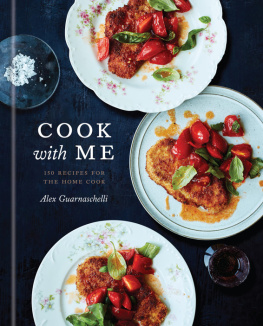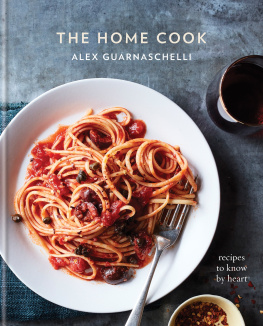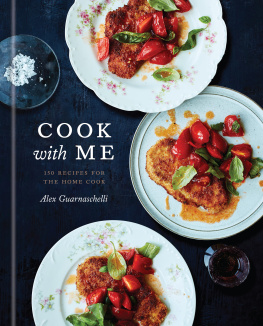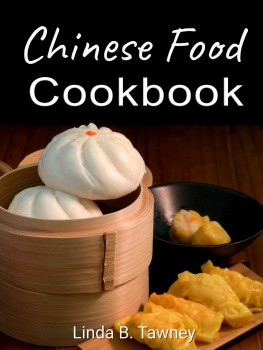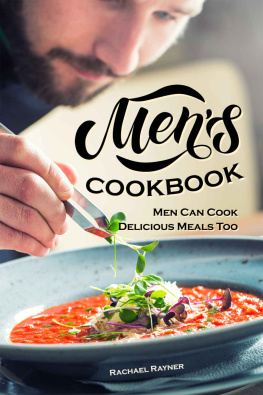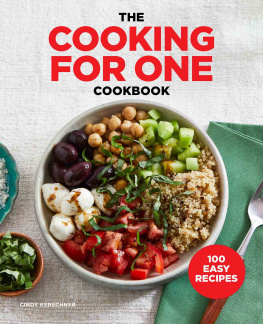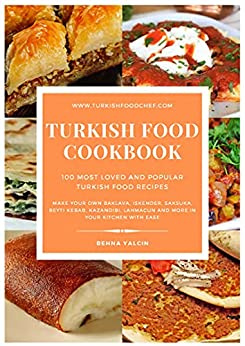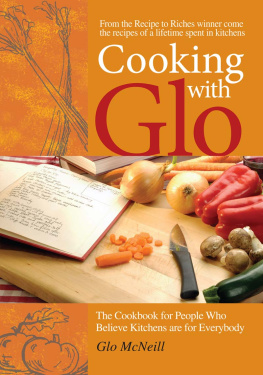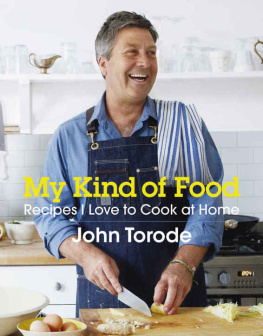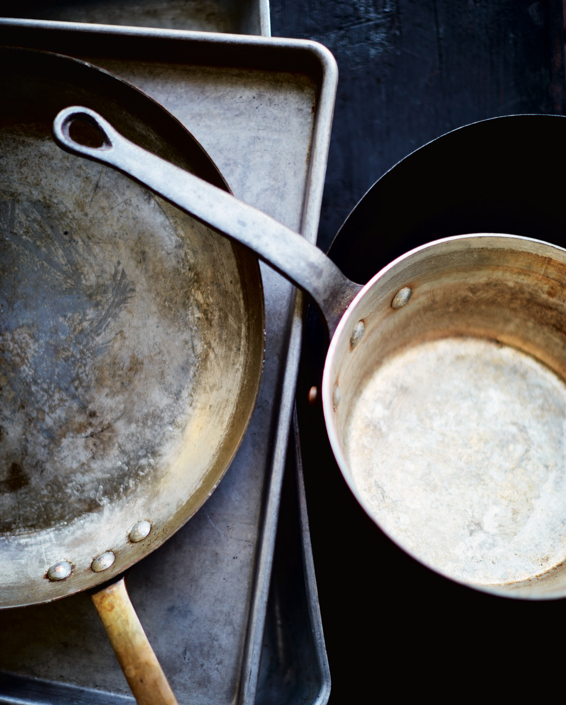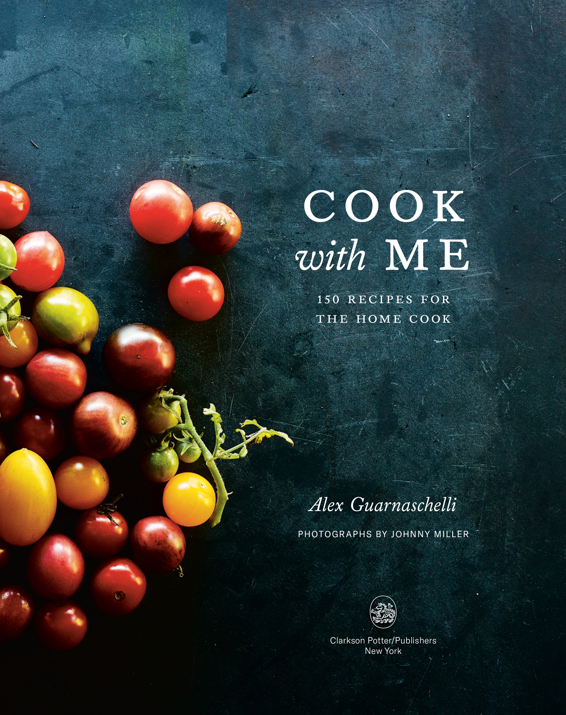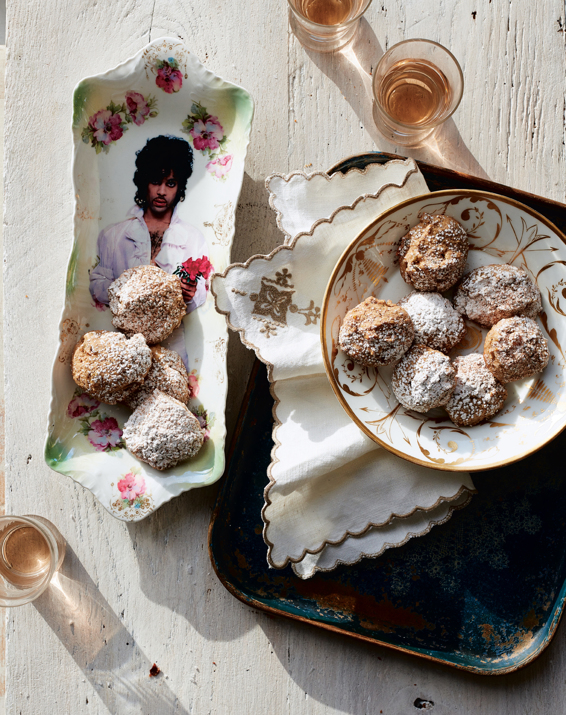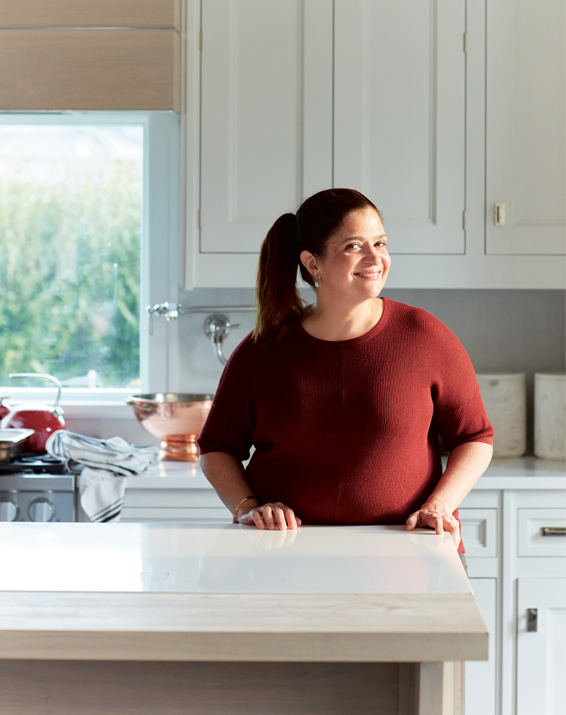Copyright 2020 by Alexandra Guarnaschelli
Photographs copyright 2020 by Johnny Miller
All rights reserved.
Published in the United States by Clarkson Potter/Publishers, an imprint of Random House, a division of Penguin Random House LLC, New York.
clarksonpotter.com
CLARKSON POTTER is a trademark and POTTER with colophon is a registered trademark of Penguin Random House LLC.
Library of Congress Cataloging-in-Publication Data
is available upon request.
ISBN9780593135082
Ebook ISBN9780593135099
Cover design by Ian Dingman
Cover and interior photography by Johnny Miller
rhid_prh_5.6.0_c0_r0
Contents
THE ONLY PLACE SUCCESS COMES BEFORE WORK IS IN THE DICTIONARY.
STUBBY CURRENCE
INTRODUCTION
My father was a man who, above all things, loved the Fourth of July. Fireworks are illegal in New York, so we would drive out to Mom and Dads modest country house in Milford, Pennsylvania, and, on the way, stop at the local fireworks warehouse for supplies. I think he actually chose to buy a house in that spot because fireworks were legal there. Hed load the car with small, low-key fireworks, drive them home, and set them off on the front lawn, lighting each one and stepping back in sprightly, boyish wonder as it shot up with bursts of light. He literally looked like a little kid. I realized right then and there that we never know our parents as children. Instead, they are the custodians of our childhood and as such always seem larger than life as we grow up. Parents can do anything, fight anyone, buy anything, and, in my case, cook absolutely anything. That cook anything part became pretty significant to me as time went on.
Everyone seems to have grandmothers or a mother who cooks and passes down recipes (or maybe, more infamously, doesnt pass down recipes). I have received so many letters from people who wish they had gotten their grandmothers secret trick to great coleslaw or had asked their mom what that missing ingredient was in her legendary cinnamon buns. I always think there is no secret or missing ingredient to these hand-me-down recipes, only the absence of the person and the comfort you felt as they cooked them. In my case, I only wish my father would come back and be alive and cook for me. Eat with me. I cant accept that he wont. Thats not a very tidy feeling. It leaves too many loose ends and questions and wishes, so this book is for him.
I know a cookbook isnt necessarily the place for tragedy. Its just that, for me, the parent and the food are inextricably connected. In my family, food marks the spot; we use food for all occasions and all states of mind. My father had a sort of oddball role in the kitchen of my childhood. He did the less glamorous cooking: the weeknight dinners of Risotto with Tomatoes and Parmesan Cheese ().
My dad also taught me that you have to do what you love for a living and that, ideally, your professions, passions, likes, dislikes, and hobbies, should be rolled into one. That was his idea of a free life lived on ones own terms. To my dad, freedom meant never sitting at a desk, never donning a suit or a uniform, and always waking up with a desireeven if you are exhausted or have a coldto go and do the days work. Do what you love, he said, because youre going to be doing it a lot and for a long time. He was right about that. I dove headfirst into a career in cooking and never looked back. But I didnt grow up wanting to become a chef. I didnt have a closet full of aprons and chef jackets. I didnt handwrite recipes with crayons as a kid. I didnt win any local hot dog cook-offs in fourth grade. I started out after college.
I began with a basic skills class at the now-closed Peter Kumps New York Cooking School and then took a once-a-week cooking class for five weeks. We did communal cooking and then ate the food we made and discussed it. My teacher? Peter Kump himself. He was wonderful. The most important thing happened on the day of my enrollment: I went to the school store and bought my first knife. A huge Wsthof-brand chefs knife. I tore open the box and examined my purchase. There mustve been twelve inches of blade. Too much for a hotshot like me. I stowed the knife carefully in my bag and brought it home to my mom and dad to show them what I intended to do. Look, Ma, I said, digging around in my bag to show her. I found the knife and pulled it out from under a mess of papers. The blade cut through the skin of the three middle fingers on my right hand, and I watched in shock as blood seeped from my fingers and soaked my bag. Was this the first lesson? I think so.
We chefs have such hang-ups about arrogance and vanity. Theres something we find commendable about being pale, hungry, somewhat malnourished (ironic for chefs, right?) or hungover (probably both), and definitely sleep deprived. This is a good look and symptomatic of the job. The chefs that roll up in ski parkas with their knives wrapped in elegantly woven wool pouches, sporting suntan marks that can only have come from ski goggles? Well, you do the math on thathow much time have they spent in their kitchens? I guess that first encounter with a knife awoke something deep inside me: the awareness that I was leaving childhood and school behind and trading it in for a savage profession, one that would demand all my attention. The price if I took my hands off the wheel? After my first knife misstep, I did everything I could to avoid the answer to that question.
I cooked so much for the next sixteen or so years that I rarely ever made anything to eat for myselfI cooked as if there were repercussions for not cooking. One night, I wanted some tea and had to boil the water in a stainless-steel measuring cup because I didnt own a pot. The instruction sheet for how to use my oven was still inside it the day I moved out of my West Village studio in 2006. Some chefs dont cook for joy or to feed themselves. They cook for sport. They cook for everyone who comes to the restaurant. They report to work for the camaraderie and to forget whatever they really need to get done in their larger life picture. Peeling 200 pounds of beets and cutting them into a 1/16-inch dice can be easier than facing a sick parent or an angry spouse. Work is a place to go to stay off the streets, a place to find community and stay out of trouble. It can be a rewarding refuge from ones own life.
Do I sound grumpy? I dont mean to. Im trying to describe my personal pursuit of passion and expertise. I wanted to become an expert at something, to master a craft. I wanted to wake up with desire and passion and to push through any conflict that impeded my path. I have come to accept that it may be the constant seeking of knowledge and striving for satisfaction with my work that drive me toward success. Becoming an expert is lonely and, in many cases, so can be the life of a chef. But our strange reality is something we must embracewe have to in order to survive and thrive. This isnt always a convenient philosophy for significant others, husbands or wives, and friends who dont work in the industry and therefore have a hard time understanding its peculiarities. But it is a point of view that can change. In fact, all of that changed for me when I gave birth to my daughter, Ava.

